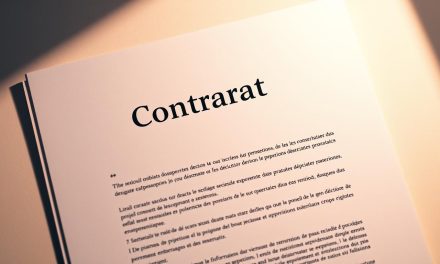Surprising fact: in France, authorities judge an activity by whether it generates a taxable profit — not by how often you do it — and that test defines your legal and fiscal situation.
We guide you step by step to build a stable business as an independent professional. You will learn how to tell genuine services and work from hobby activity, so you can avoid compliance pitfalls and plan income with confidence.
Practical and protective: we explain main status options, how each affects tax treatment, social protection, and long-term benefits. That clarity helps you pick the right structure for your company and personal security.
From the documents and identifiers you need to register, to invoicing and daily administration, this introduction sets a clear path. Our aim is to give entrepreneurs concrete actions and checkpoints to move from intention to steady income.
Table of Contents
Key Takeaways
- Authorities focus on profitability to determine trading status and tax obligations.
- Choose a legal status that matches your goals for tax, protection, and benefits.
- Organize documents and invoicing from day one to protect income and assets.
- Understand trade-offs: flexibility and control versus more administrative responsibility.
- Follow a stepwise launch plan: registration, first invoices, then routine administration.
- We offer practical checkpoints and resources tailored to France for a smoother transition.
Understanding self-employment in France today
Whether your work counts as a business in France depends less on hours and more on profit and independence. Authorities look for recurring income, clear responsibility for results, and control over how you deliver services.
Definition and status: A person is generally treated as independent if they choose recognition or earn income that triggers a tax filing. Occasional sales or hobby trades are often ignored when no profit appears.
How authorities assess an activity
- Profitability: Regular profit signals a business and creates tax and filing duties.
- Independence: Multiple clients, set prices, and control over hours point to an independent person rather than an employee.
- Practical indicators: recurring income streams, responsibility for outcomes, and client relationships.
France in the European context
In 2021, France’s independent rate stood at 12.6% (OECD). This places France below Italy (21.8%) and Spain (15.8%), but above Germany (8.8%) and the United States (6.3%).
| Country | Self-employed rate (%) | Common categories | Implication for income |
|---|---|---|---|
| France | 12.6 | Sole proprietor, contractor, partner | Profit triggers tax filings and contributions |
| Italy | 21.8 | Freelancer, VAT-registered professional | High prevalence of freelance services |
| Germany | 8.8 | Freelance professions, small business owner | Lower rate, stricter classification rules |
| United States | 6.3 | Independent contractor, sole trader | Diverse state rules on classification |
We provide this information so you can assess your own situation and choose the right legal path. Clear classification helps you avoid misclassification risks and align your contracts with tax rules and labour protections.
Who can become self-employed in France and visa essentials
Before you launch, check whether your immigration status allows you to run a business in France. EU/EEA citizens can register a micro‑entreprise directly without a special residence permit. Non‑EU nationals must hold a permit that specifically authorizes non‑salaried activity.
Key permit: the carte de séjour « entrepreneur / profession libérale. » Authorities may ask for past results or a five‑year business plan. Processing time varies and can include review of projected income to confirm viability.
Visas that prohibit independent activity and how to change
Student and salarié (temporary employee) permits normally do not allow independent work. To register a business you must change status or wait until your permit permits non‑salaried activity.
- Eligibility: EU/EEA — immediate; non‑EU — residence permit authorising non‑salaried work required.
- Registration essentials: French business address (domiciliation) and a personal French tax number are mandatory.
- Timing: plan client outreach and contracts around the issuance of your registration number to avoid legal and tax limits.
We recommend preparing credibility evidence—letters of intent, a pricing grid, and a short market brief—and seeking immigration or business advice when rules are unclear. This reduces risk and helps align your chosen status with the scope of your business activity.
Choosing the right legal structure for your activity
Your choice of legal status determines how your revenue is taxed and how risks are shared. This decision affects your accounting, required insurance, and the contracts you sign with clients.

Micro‑entreprise: thresholds, benefits, and limits
Simple and common. Micro‑entreprise offers simplified bookkeeping and VAT exemption below thresholds. For service revenue the limit is €72,600; for goods it is €176,200.
Pros: easy registration, reduced social charges. Cons: cannot deduct expenses and no paid vacation, so price your service accordingly.
EURL and SASU: when to upgrade
EURL protects personal assets and can be taxed as personal or corporate income. SASU creates a separate company with formal statutes and registration costs around €300–€500.
Portage salarial and regulated professions
Portage salarial makes you an employee of an umbrella firm that invoices clients and issues payslips, typically charging 7–10% fees. It suits entrepreneurs who want employee‑style protection while keeping commercial autonomy.
Certain regulated professions (architects, lawyers, doctors, accountants) follow specific rules and may need authorization or membership in an order.
« Choose the form that matches your revenue plan and risk tolerance; change it as your activity grows. »
| Structure | Main advantage | Key limit |
|---|---|---|
| Micro‑entreprise | Simplified accounting, VAT exemption | Revenue cap (€72,600 services) |
| EURL | Asset protection, tax options | More formal accounting required |
| SASU | Separate legal entity, growth‑friendly | Setup costs and governance rules |
Registration and first steps: from URSSAF to SIREN/SIRET
The registration choices you make on URSSAF shape your tax treatment, reporting rhythm, and the way you bill clients. Begin online by selecting whether you are a commerçant (goods), an artisan, or a service provider.
Selecting your main activity, declaring start date, and payment frequency
Declare the activité principale exercée clearly and provide a business address. Choose monthly or quarterly declarations to match your cash flow.
INSEE usually issues the SIREN/SIRET number within about one month. These numbers must appear on invoices. Before they arrive, use “SIRET en cours d’attribution” to invoice without delay.
Invoicing basics: mandatory mentions, TVA notes, and payment terms
Invoices must include: invoice date, delivery date, clear description of the goods or service, unit prices, discounts, total, client name and address, your company name, and your SIREN number when issued.
Under micro‑entreprise VAT thresholds add: TVA non applicable, article 293 B du CGI. If your work needs a ten‑year insurance mention, include it on the invoice. Legal payment terms are 30 days from receipt unless you agree otherwise in writing.
« Complete the URSSAF form with precise activity and contact details; it prevents delays and ensures your invoices are valid from day one. »
| Step | What to provide | Typical time |
|---|---|---|
| URSSAF registration | Category, main activity, business address, declaration cadence | Immediate (online) |
| INSEE processing | SIREN / SIRET issuance | ~1 month |
| First invoices | Invoice date, delivery date, itemized description, SIREN or “SIRET en cours d’attribution” | Can be issued before SIRET arrival |
- Practical tip: Align monthly or quarterly declarations with your billing cycle to simplify tax and contribution accounting.
- First‑30‑days checklist: create URSSAF account, declare activity and start date, set up invoicing template, and keep proof of address.
- Help and further information: see our guide on registering and numbers at registering in France.
Banking, accounting, and day‑to‑day administration
A clear split between personal and professional money is the simplest safeguard for your new activity. For micro‑entrepreneurs in France, a separate account is required once annual receipts exceed €10,000.
Open a dedicated checking account or use a separate personal checking account to record business flows. Traditional banks (La Banque Postale, AXA) and online options (Qonto, N26) offer accounts adapted to small business needs.
Keep minimal accounting: retain invoices, receipts, and expense notes. Reconcile monthly and prepare figures for URSSAF declarations, made monthly or quarterly.
- Set up: separate account, clear invoice numbering, and a simple income chart to track services and costs.
- Tools: use lightweight platforms such as MyAE.fr for bookkeeping and exportable reports.
- Habits: weekly reconciliation, monthly review, and secure cloud backups when you work from home.
| Bank | IBAN | Card & fees | Integrations |
|---|---|---|---|
| La Banque Postale | Local IBAN | Low fees for basic accounts | Accounting export, partner apps |
| AXA | Local IBAN | Competitive packages | Good customer support |
| Qonto | EU IBAN | Transparent monthly plans | Direct accounting integrations |
| N26 | EU IBAN | Simple cards, some free tiers | Basic exports, third‑party tools |
When revenue and complexity grow—for example moving to EURL or SASU—hire a company accountant. A short briefing with clear ledgers will reduce onboarding time and costs.
« Clear accounts and steady routines protect your cash and make tax time calm. »
Taxation for freelancers in France: income tax, returns, and CFE
Knowing when to pay tax during the year can preserve liquidity and reduce year‑end stress. Micro‑entrepreneurs report business revenue as personal income on the French tax website. You may choose the versement libératoire to pay income tax as you declare receipts, or pay later via your annual income tax return.

Declaring revenue and the versement libératoire
Declare revenue accurately and on time to avoid penalties. The versement libératoire suits those who prefer steady, predictable payments.
If your taxable income is low (for example under €10,777 net in 2023), paying as you go may not be advantageous. Note: overpayments are not refunded.
Local business tax (CFE)
CFE is a municipal tax. Each commune sets the base and the final amount according to premises and turnover. Liability depends on your registered headquarters.
VAT/TVA thresholds for services and goods
Under micro thresholds you do not charge VAT. Invoices must state “TVA non applicable, article 293 B du CGI” until you exceed the limit and start collecting VAT.
- Keep an invoice ledger, bank statements, and receipts for your annual tax return.
- Plan a simple calendar for quarterly or monthly declarations to smooth cash flow and contributions.
Social security contributions, health insurance, and benefits
Knowing which contributions bite into your receipts helps you plan cash flow across the year. For micro‑entrepreneurs, a single social charge is paid when you declare revenue. The standard rate is around 22%, plus a mandatory training levy of 0.20%.
Rates, schedule, and calculation base
The base for social security contributions is your declared turnover. You can declare monthly or quarterly to match invoicing rhythms. Timely declarations secure entitlements and smooth cash flow.
Healthcare, sick leave, and retirement
France’s universal healthcare covers freelancers. After 12 months you may claim paid sick or parental leave. Daily allowances depend on your average declared income and submitted documents.
Complementary insurance and liability
Mutuelle (complementary insurance) is common to reduce out‑of‑pocket costs. Professional liability insurance is recommended and required in many sectors such as construction and health.
« Accurate declarations protect both your benefits and your ability to forecast net income. »
- Protect assets: consider EURL/SASU or a déclaration d’insaisissabilité for personal safeguards.
- Plan taxes: align contributions with tax forecasts to avoid double counting.
- Checklist: declare on time, keep proof of income, subscribe to a mutuelle, and insure professional risks.
Growing your income: clients, contracts, and hybrid work
Building a steady revenue stream depends on consistent outreach, clear offers, and smart contract terms.
We outline practical steps to find work, protect payments, and blend salaried roles with a micro‑entreprise for greater security.
Finding opportunities: platforms, job boards, and incubators
Use Malt and Upwork for freelance leads, and check MeteoJob, Indeed, and Welcome to the Jungle for contract roles.
Sector sites like ProfilCulture, CNMWork, and the Portail de l’emploi dans l’économie sociale et solidaire connect you to niche businesses.
Couveuses, pépinières, and incubateurs offer mentoring, introductions, and training to scale your activities.
Work location and professional services
Working from home cuts overhead; coworking (Morning.fr, Workin.space, WeWork) offers client-facing space when needed.
Keep a dedicated business account and use professional services on demand (legal reviews, bookkeeping) to maintain compliance and security.
Combining a salary and a micro‑entreprise
You can hold a salaried job and run a micro‑entreprise if you declare the activity as secondary or primary per rules.
Income from both is combined for tax and unemployment calculations. Use deposits, staged billing, and clear payment terms to protect cash flow.
| Option | When to use | Key benefit | Risk mitigation |
|---|---|---|---|
| Platform work (Malt, Upwork) | Project-based gigs | Fast client access | Contracts + staged invoices |
| Incubator support | Early-stage growth | Mentoring and networks | Trial periods, clear KPIs |
| Hybrid salaried + micro | Stable income need | Salary safety + growth | Separate accounts, clear contracts |
« Diversify clients, secure contracts, and keep a disciplined account follow-up to weather market dips. »
Conclusion
In closing, apply clear routines to your activity so taxes, contributions, and benefits remain predictable over the year.
Start with a concrete roadmap: choose the right status, register with URSSAF, obtain your SIREN/SIRET number, and open a dedicated account to separate business and personal flows.
Manage tax and social obligations proactively. For micro‑entreprise expect social security charges near 22% plus a 0.20% training levy. Note VAT rules: use “TVA non applicable, article 293 B du CGI” until thresholds change. Consider the versement libératoire if you prefer to pay income tax as you declare revenue.
Secure protections: use social security benefits, subscribe to a mutuelle, and add professional insurance when your profession or company requires it. Portage salarial remains an option for employee‑style administration (7–10% fees).
Review your setup every 6–12 months. Keep invoices, engagement letters, bank statements, and records so your income tax return and other returns are simple and auditable.
We support your plan: with structure, routine, and informed choices you can protect income, control taxes, and build lasting financial security while keeping autonomy in your work.
FAQ
What does being self-employed in France mean for taxes and social security?
Being self-employed means you operate as an independent business owner and must register with French authorities (URSSAF and INSEE) to obtain a SIREN/SIRET. You are responsible for declaring revenue, paying income tax or opting for versement libératoire if eligible, and covering social security contributions for health, family benefits, and retirement. The exact rates and payment frequency depend on your legal structure (micro‑entreprise, EURL, SASU) and activity type.
Who can work independently in France, and what about EU vs non‑EU nationals?
EU/EEA and Swiss citizens can freelance without a visa but must register their activity. Non‑EU nationals generally need a residence permit authorizing independent work, such as a talent/passport entrepreneur card or a profession libérale visa. Some visas (student or visitor) prohibit independent activity; holders must change status through the prefecture to start legally.
What are the main legal structures for independent workers and how do I choose?
Common options include micro‑entreprise for low administrative burden and capped turnover, EURL (single‑member limited company) where liability is limited and taxes can be corporate or personal, and SASU offering social protection for presidents. Portage salarial lets you invoice clients while receiving employee‑style benefits. Choose based on revenue, liability, and desired social protection; consult an accountant for tailored advice.
What are the turnover thresholds and main benefits of the micro‑entreprise regime?
Micro‑entreprise thresholds differ by activity: higher limits for sales of goods, lower for service provision. Benefits include simplified bookkeeping, flat social contributions based on turnover, and a simplified income tax option (versement libératoire) if you qualify. Limits include restricted VAT handling and capped deductible expenses compared with real‑regime accounting.
How do I register when starting my activity in France?
Register online with the appropriate body: URSSAF for most services or the Chambre de Commerce/Artisanat for trades. Declare your main activity, start date, and preferred payment frequency for social contributions. After registration you receive a SIREN/SIRET and should set up invoicing and a separate bank account if required by law.
What must appear on invoices and how should I handle VAT (TVA)?
Invoices must include seller and buyer details, SIREN/SIRET, VAT number when applicable, date, description of services, quantity, unit price, and payment terms. If you exceed VAT thresholds, you must charge TVA and file periodic VAT returns. Micro‑entrepreneurs below thresholds use franchise en base de TVA and do not charge VAT but must note this exemption on invoices.
Do I need a separate bank account for my freelance activity?
For micro‑entrepreneurs with annual turnover under a set threshold, a separate bank account dedicated to the activity is mandatory, though not necessarily a professional account. For other legal forms (EURL, SASU) a business bank account is highly recommended to separate personal and business finances and simplify accounting and tax filing.
How are social security contributions calculated and paid?
Contributions are usually calculated as a percentage of declared turnover (for micro‑entrepreneurs) or based on remuneration for company directors. Payments follow a monthly or quarterly schedule to URSSAF. Rates vary by activity (commercial, artisanal, liberal) and fund contributions cover health, family benefits, disability, and basic retirement.
What health coverage and benefits do independent workers receive?
Independents are covered by the French social security system for healthcare and maternity/parental leave once contributions are paid. Basic coverage is complemented by complementary health insurance (mutuelle) for better reimbursement. Retirement rights build from contributions; consider additional private pension plans for extra security.
Can I combine salaried work with a micro‑entreprise to stabilize income?
Yes. Many professionals keep an employment contract and run a micro‑entreprise part‑time to diversify income. You must inform your employer if your contract contains exclusivity clauses. Combining both can smooth cash flow and provide unemployment protection from the salaried role while growing your independent activity.
What is portage salarial and who should consider it?
Portage salarial is a hybrid solution where a portage company invoices clients on your behalf and pays you a salary after fees. It provides employee‑style benefits such as unemployment coverage, social security, and simplified administration. It suits consultants who want client freedom without company formation or those testing market fit.
How does CFE (local business tax) affect independent professionals?
CFE is due by businesses and independent professionals holding a permanent establishment in France. The rate is set by municipalities and depends on rental value of business premises; micro‑entrepreneurs may benefit from initial exemptions in the first year. Filing and payment are annual; check local rules to estimate liability.
What are obligations for regulated professions and restricted activities?
Regulated professions (medical, legal, architecture, etc.) require specific diplomas, professional insurance, and registration with relevant professional bodies. Some activities require permits or safety certifications. Verify industry rules before launching to ensure compliance and appropriate liability coverage.
How do I grow my client base and protect income as a freelancer?
Use platforms, specialized job boards, networking, and incubators to find clients. Draft clear contracts with payment terms, late fees, and scope definitions. Consider diversifying services, setting retainer agreements, and combining remote work with coworking to reduce isolation and expand opportunities.
What insurance and professional liability should I consider?
Professional liability insurance (responsabilité civile professionnelle) is essential for most activities to cover damages from services. Complementary insurances include business interruption, cyber, and enhanced health coverage. Regulated professions often mandate specific policies—verify requirements before contracting clients.





